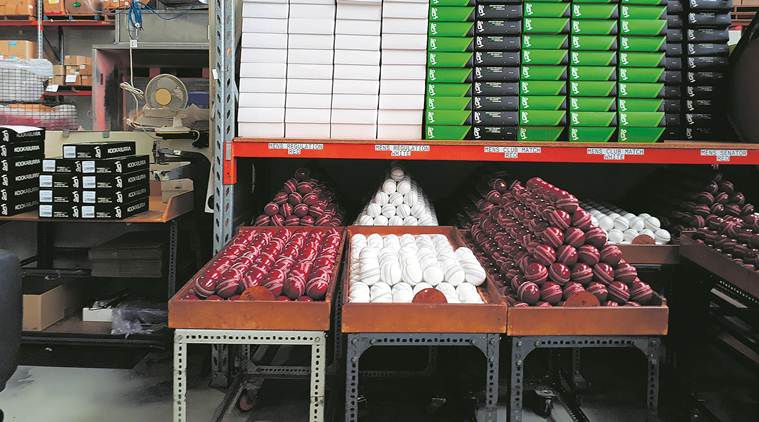
MCC has recommended usage of a single brand of ball starting with the ICC Test Championship this year. All Test matches that form part of the Championship should be played with the same ball is the recommendation of the MCC’s world cricket committee that met in Bengaluru on March 8 and 9. The exception to this rule, as per MCC, will be day-night Test matches where a pink ball is the norm. The Test championship starts with the Ashes series between England and Australia this summer.
“Trials of the use of different balls have been taking place in different countries at first class level. Currently, the Dukes ball is used for Tests in England and the West Indies, the SG ball is used in India, and the Kookaburra is used in all other countries. For day/night Tests, the pink Kookaburra has been the ball of choice, whilst all One Day International and T20 International cricket uses the white Kookaburra ball,” said the statement by MCC.
“The committee felt that the World Test Championship provided the perfect opportunity to introduce this suggestion.”
Countdown clock to speed up play and a free hit after no ball are two more ideas that have been proposed and will be assessed. The concerns were thrown up after a Test Cricket Survey revealed the longest format was still the preference for the fans.
ICC’s statistics revealed that since May 2018 over rates were the lowest in the eleven years that they had been measured, at 13.77 per hour. 25% of fans from England, Australia, New Zealand & South Africa, who were surveyed, mentioned slow over rates as the barrier for them attending Test cricket. Keeping this in mind, MCC has proposed a countdown clock.
The timer, to be shown on the scoreboard, would count down from 45 seconds when the umpire calls “over”. The next over would be required to begin before the time runs out.
Sixty seconds would be allowed between overs when a new batsman is to come to the crease and 80 seconds for a change of bowler. If either team is not ready to play when the clock ticks down to zero, they would receive a warning. Multiple infringements of the countdown would lead to five penalty runs being awarded to the opposing side.
The introduction of a free hit after a no ball in Test matches — just like the rule in limited-overs international cricket — was also proposed.